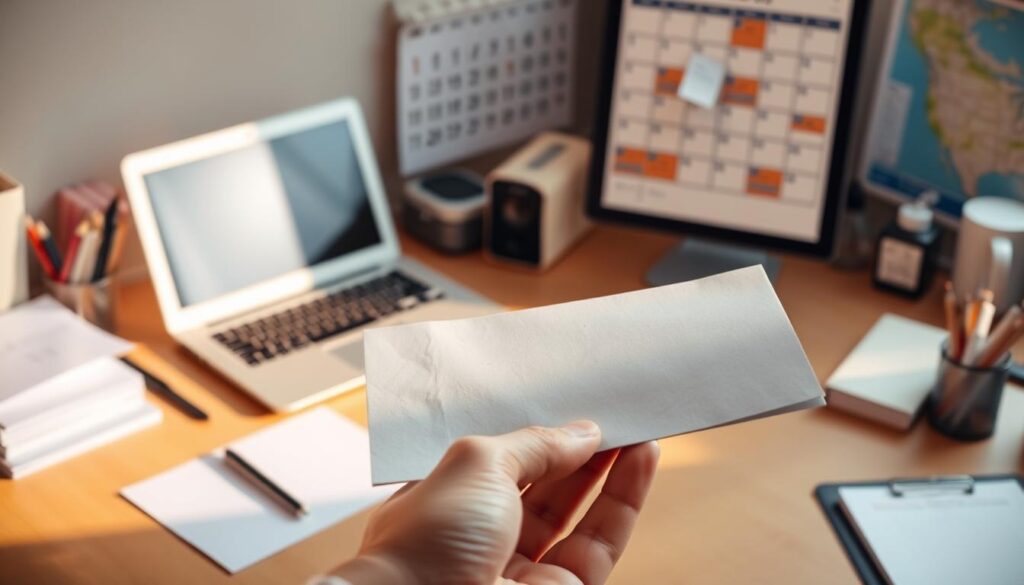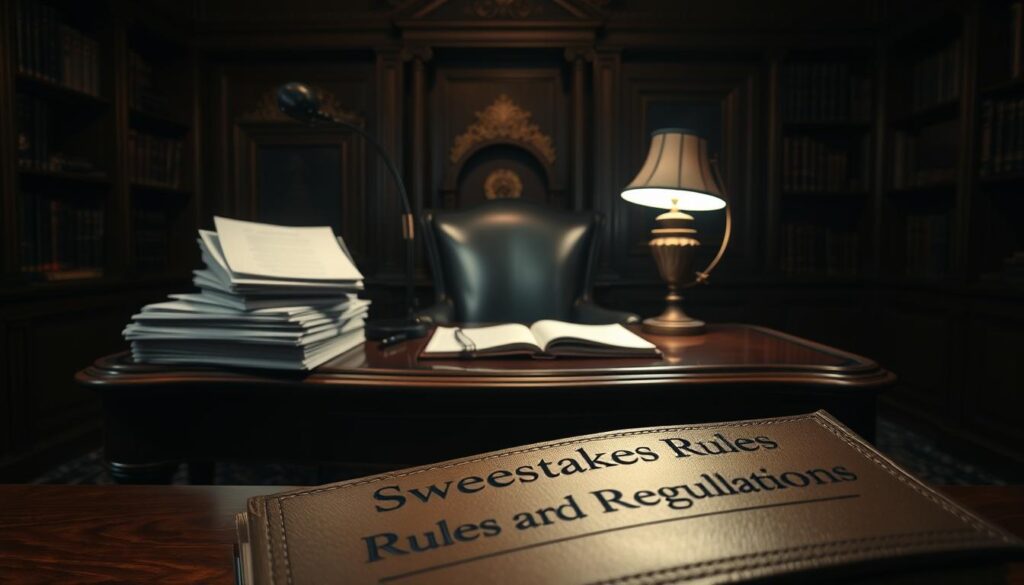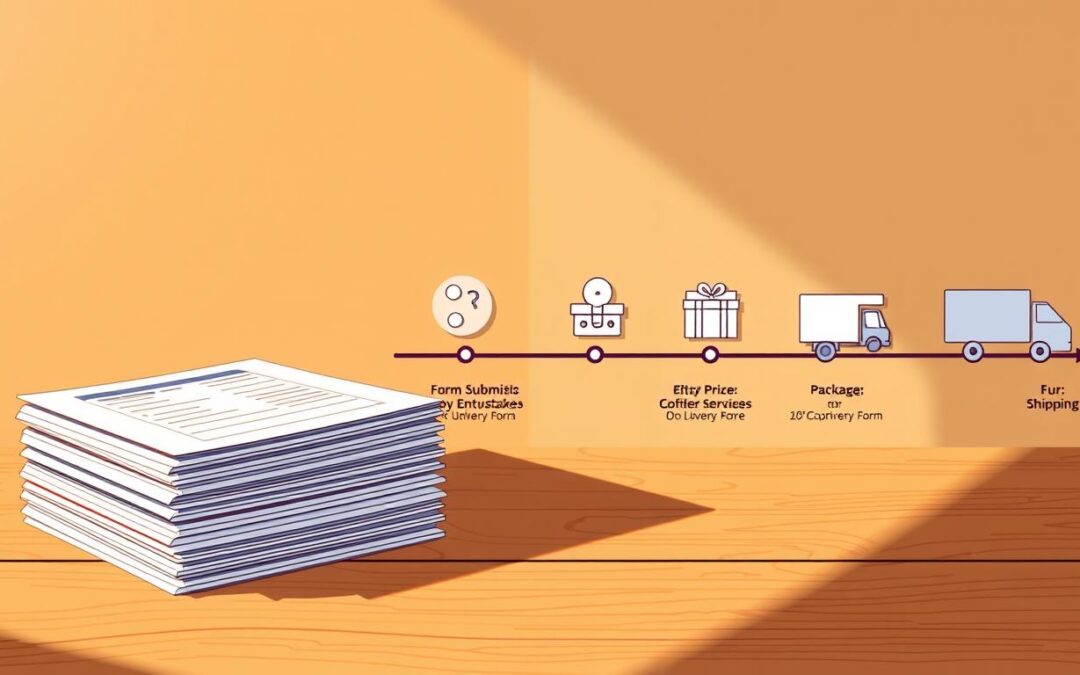Winning a sweepstakes sparks excitement, but the wait for your reward can feel endless. Many participants wonder about the time between victory and delivery. While instant gratification is rare, knowing what to expect helps ease the anticipation.
Prize fulfillment involves multiple steps. First, winners must complete verification to confirm eligibility. This process prevents fraud and ensures compliance with contest rules. Delays often occur if paperwork isn’t submitted promptly or accurately.
Shipping methods and prize types also impact timelines. Digital rewards, like gift cards, typically arrive faster than physical items. Larger prizes, such as electronics or vehicles, may require specialized logistics. Travel packages demand even more coordination between sponsors and winners.
Legal requirements add another layer. Sponsors must follow state and federal regulations, which sometimes prolong delivery. Understanding these factors sets realistic expectations and reduces frustration during the wait.
Key Takeaways
- Verification steps are mandatory and affect how quickly prizes are released.
- Digital rewards often arrive faster than physical goods or travel experiences.
- Shipping complexity varies based on prize size and destination.
- Legal compliance can extend timelines for high-value items.
- Clear communication from sponsors helps winners track progress.
Overview of Sweepstakes Processes and Timelines
Behind every sweepstakes victory lies a structured process governing when and how rewards arrive. These promotions rely on chance-based selection, distinguishing them from skill-based contests or paid lotteries. Official rules act as the backbone, outlining every phase from entry to fulfillment.
Understanding Sweepstakes Mechanics
Companies design sweepstakes to engage participants while adhering to legal frameworks. A typical campaign follows three phases:
- Launch and entry collection
- Random winner selection
- Verification and prize distribution
Digital entries often speed up initial stages, while physical prize logistics extend timelines. The type of reward directly impacts the waiting period—e-gift cards may arrive in days, whereas appliances could take weeks.
The Role of Sweepstakes Rules
Every promotion’s official rules serve as a binding agreement. They specify deadlines for claiming prizes and outline required documentation. Sponsors cannot alter these terms post-launch, ensuring fairness for all participants.
Clear rules also protect companies from legal disputes. They establish verification protocols and delivery estimates, managing expectations for both parties. Always review this information before entering—it reveals how the time between winning and receiving unfolds.
The Answer: How Long Does It Take to Receive Sweepstakes Prizes?
Once declared a winner, the countdown begins. Most physical rewards arrive within 8-12 weeks after verification. Sponsors need this window to handle logistics while complying with legal requirements.
Digital gifts like e-gift cards often land in inboxes within 3-5 business days. Physical items follow a three-phase journey:
- Winner confirmation (1-2 weeks)
- Prize sourcing and processing (3-6 weeks)
- Shipping and delivery (2-4 weeks)
Customized rewards add extra time. A monogrammed suitcase might take 14 weeks, while standard electronics usually ship faster. International winners should anticipate extended timelines—sometimes 5-6 months for overseas customs clearance.
"The 12-week standard accounts for vendor coordination and quality checks,"
explains a promotions manager from a Fortune 500 company. High-value items like cars require additional paperwork, potentially stretching fulfillment to 120 days.
Always check the official rules for specific estimates. Some luxury travel packages take 6-8 months to arrange due to venue bookings and seasonal availability.
Factors Impacting Prize Delivery Time
Multiple variables determine when rewards land in winners' hands. Logistics play a critical role, with shipping choices and geographic realities shaping timelines. High entry volumes and seasonal demand further influence how sponsors manage fulfillment.

Shipping Methods and Delivery Periods
Sponsors select carriers based on prize type and budget. Standard ground shipping adds 7-14 days, while expedited air transport cuts this to 2-5 days. Bulky items like furniture often require freight services, extending the period by 3 weeks.
Geographic and Entry Volume Considerations
Urban addresses typically see faster deliveries than rural areas. International shipments face customs delays – up to 45 days extra for overseas participants. Contests with 10,000+ entries may take 30% longer to process due to verification backlogs.
Seasonal spikes like Black Friday create shipping bottlenecks. A 2023 industry report showed December deliveries average 18 days versus 12 in off-peak months. Proximity to fulfillment centers also matters – winners within 200 miles often get items 9 days sooner.
Understanding Sweepstakes Entry Methods
The way you enter sweepstakes shapes both participation opportunities and administrative workflows. Modern promotions provide multiple pathways to engage, each affecting verification efficiency and fulfillment speed.
Traditional Entry Process
Standard methods include online forms, social media interactions, and point redemption systems. Many sponsors let users earn entries through actions like:
- Completing website activities
- Sharing promotional posts
- Redeeming loyalty points for bonus entries
These systems often allow multiple entries per person, capped at limits like 10,000 per contest.
Alternate Methods of Entry
AMOE (Alternate Method of Entry) ensures free participation without purchases. For example:
- Mailing handwritten postcards
- Submitting online forms with basic details
Each valid AMOE request typically grants 250 entries, reaching up to 10,000 per person. This approach keeps promotions legal while broadening access.
Automated tracking systems help sponsors manage high entry volumes accurately. However, varied methods create different verification needs—social media entries may require profile reviews, while mailed submissions need manual processing. Clear documentation from participants accelerates confirmation, indirectly speeding up prize delivery.
Analyzing Sweepstakes Odds and Prize Value
The thrill of entering contests intertwines with the mathematics of probability and reward valuation. While luck plays its role, understanding odds and retail value reveals why some prizes take longer to claim than others. These factors shape verification protocols and logistical planning behind the scenes.
Odds of Winning and Entry Distribution
Contest odds mirror participation numbers – more entries mean slimmer chances. For example:
- 1,000 entries create 0.1% win probability
- 10,000 entries drop odds to 0.01%
Sponsors calculate these figures using total valid submissions. As a promotions coordinator notes:
"Equal entry weighting ensures fairness, but scale impacts timelines – high participation often means extended verification."
Retail Value and Its Influence
Higher retail value prizes trigger stringent checks. A $50 gift card might need basic ID confirmation, while a $10,000 vacation package requires:
- Tax documentation
- Background checks
- Legal agreements
These steps add 2-4 weeks to fulfillment versus digital rewards. ARV listings help participants gauge potential wait times – luxury items often involve third-party vendors and insured shipping, extending delivery by 30% compared to standard goods.
Smart entrants review both odds and prize tiers before joining. This dual analysis sets realistic expectations for both victory chances and post-win timelines.
Legal Requirements and Sweepstakes Rules
Navigating sweepstakes regulations requires understanding both federal standards and state-specific mandates. Sponsors must balance promotional goals with strict legal obligations that govern every phase of operations.

Official Sweepstakes Rules Overview
Every contest operates under binding rules detailing eligibility, entry methods, and prize claims. These documents remain unchangeable once published. Key components include:
- Entry deadlines and participation restrictions
- Prize descriptions with exact retail values
- Tax liability disclosures for winners
Florida, New York, and Rhode Island enforce strict registration rules. Promotions exceeding $5,000 in total value (or $500 for Rhode Island store events) require state filings. This adds 2-3 weeks to processing as officials review submissions.
Local Laws and Compliance
State laws regulations create geographic variations in prize fulfillment. A 2023 compliance report showed:
- New York requires 30-day public winner lists
- Florida mandates bond postings for high-value giveaways
- Rhode Island limits retail promotions to 90 days
Federal rules prohibit requiring purchase payment for entry. This "no consideration" principle keeps promotions legal but adds verification steps. Sponsors must maintain winner records for four years, extending confirmation timelines for older contests.
"Legal reviews account for 40% of fulfillment time in regulated states,"
These safeguards protect participants but mean longer waits for winners. Understanding regional local laws helps set accurate expectations for reward delivery schedules.
Strategies to Increase Your Sweepstakes Success
Maximizing success in sweepstakes requires more than just good luck—it demands strategy. Participants who refine their approach often see better results while maintaining realistic expectations about prize timelines.
Consistent and Diverse Entries
Entering sweepstakes regularly across multiple platforms boosts your chance win potential. Consider these tactics:
- Set daily reminders to submit entries
- Use both online forms and mail-in options
- Focus on contests with fewer participants
Tracking tools like spreadsheets help manage deadlines and rules. A 2023 study showed participants entering 50+ monthly promotions doubled their win rates compared to casual entrants.
Leveraging Social Media and Engagement
Brands often reward active followers through exclusive social media contests. Boost visibility by:
- Commenting on sponsor posts
- Sharing promotions with unique hashtags
- Participating in live-stream giveaways
"Engaged followers often receive faster verification—we prioritize responsive winners,"
Building relationships with sponsors can streamline communication if you win. Follow brand accounts for early access to new promotions and bonus entry opportunities.
Common Pitfalls and Mistakes in Sweepstakes Participation
Navigating sweepstakes requires awareness of hidden traps that could erase your victory. Many enthusiastic participants lose prizes through avoidable errors—even after being selected as winners.
Avoiding Disqualification and Rule Violations
Sponsors automatically void entries for specific violations. Robotic submission tools rank as the top disqualifier—using scripts or auto-fill programs breaches most contest rules. A 2023 industry audit found 23% of rejected claims involved automated systems.
| Mistake | Consequence | Prevention Tip |
|---|---|---|
| Multiple entries beyond limits | All submissions voided | Track daily attempts |
| Incomplete contact information | Prize forfeiture | Triple-check forms |
| Rule misinterpretation | Delayed verification | Save official documents |
| Missed response deadlines | Automatic disqualification | Set calendar alerts |
Tampering attempts—like fake accounts or manipulated entries—trigger permanent bans. Legal consultant Maria Torres warns:
"One invalid entry can nullify a person's entire participation history with that sponsor."
Time-sensitive errors prove equally damaging. Winners who delay responding to verification requests beyond 72 hours often lose claims. Maintain accurate records and respond promptly to safeguard your eligibility.
Dependence on Notification Timelines and Prize Details
The clock starts ticking the moment a sweepstakes concludes. Sponsors typically initiate contact with winners within 10 business days through phone calls, emails, or certified mail for high-value rewards. This period allows companies to verify entries while maintaining legal compliance.
Understanding Prize Notification Periods
Most organizations require immediate confirmation from potential winners. A standard response window lasts 48-72 hours. Missing this timeframe triggers alternate selection processes. One promotions coordinator notes:
"We attempt contact three times across two days before moving to the next eligible participant."
Required information varies by prize tier. Digital rewards might need basic ID verification, while luxury items demand tax forms or notarized documents. Sponsors often send follow-up emails with detailed instructions for claim completion.
Geographic factors occasionally extend notification periods. International winners might wait 15 business days due to time zone differences. Always update contact details before entering contests and monitor spam folders for email alerts.
How Sweepstakes Prize Redemption Works
Securing a sweepstakes victory marks just the first step in claiming your reward. Sponsors implement structured procedures to confirm eligibility and protect all parties. This phase often determines whether celebrations continue or dissolve into frustration.
Claiming the Prize and Verification Process
Winners typically receive initial contact via email or certified mail within 14 days. Immediate action is crucial—most sponsors demand response within 72 hours. Required proof often includes:
- Government-issued photo ID
- Signed affidavit of eligibility
- Completed tax forms (for high-value items)
Delays commonly occur when participants question document requests or miss deadlines. Keep digital copies ready to accelerate verification.
Handling Background Checks and Documentation
High-value prizes trigger deeper scrutiny. Sponsors may require background checks spanning 3-5 years of address history. Some demand notarized statements confirming compliance with official sweepstakes rules.
International winners face additional layers. A $10,000 vacation package might need visa approvals and medical waivers, adding 4-6 weeks to processing. Always review requirements promptly to avoid forfeiture.
